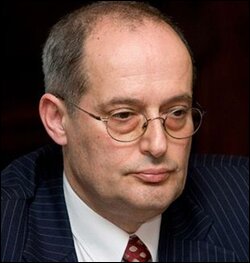Другие материалы рубрики «English»
-
 Opposition activists stage Chernobyl anniversary march in Minsk
Opposition activists stage Chernobyl anniversary march in Minsk
Opposition activists staged a traditional demonstration in Minsk on Sunday to mark the 29th anniversary of the Chernobyl nuclear accident... -
 Bruce Bucknell. Remember Crimea
Bruce Bucknell. Remember Crimea
A year ago, the Kremlin helped stage an illegal and illegitimate “referendum” in Crimea that culminated in Russia annexing Crimea from Ukraine...
- Zyanon Paznyak calls for preventing pro-Putin bikers from riding through Belarus on controversial road trip
- Biathlon Youth and Junior World Championships draw to close near Minsk
- US State Department’s envoy to visit Belarus this week
- Lukashenka meets with EEAS deputy secretary general
- EU foreign ministers, Brussels officials expected to visit Minsk soon
- Revelers in Minsk celebrate end of Butter Week
- Leaders of France, Germany, Russia, Ukraine arrive in Minsk for summit on Ukraine crisis
- United Kingdom’s Visa Application Center in Minsk moves into permanent office
- Minsk residents paying tribute to victims of Charlie Hebdo massacre in Paris
- Minsk adorned by New Year illumination
English
UN Human Rights Council’s special rapporteur on Belarus holding consultations with representatives of Belarus' civil society
 Miklos Haraszti, the UN Human Rights Council’s special rapporteur on Belarus, is holding consultations with representatives of Belarus' civil society during his July 11-14 visit to Vilnius, according to the UN News Center.
Miklos Haraszti, the UN Human Rights Council’s special rapporteur on Belarus, is holding consultations with representatives of Belarus' civil society during his July 11-14 visit to Vilnius, according to the UN News Center.
Mr. Haraszti had to start talks in the Lithuanian capital city because the Belarusian authorities had not granted him permission to visit the country, the center noted.
"I'm going to meet with representatives of Belarus' civil society and discuss the human rights situation in the country," Mr. Haraszti said before his departure for Vilnius. "Following my appointment as special rapporteur, I tried to cooperate with the Belarusian government and organize my official visit to Belarus. Given the lack of cooperation and in order to carry out my mandate, I continue meeting with individuals to get information about the human rights situation in this country."
While in Vilnius, Mr. Haraszti is to meet with a number of Belarusians, including representatives of NGOs. The results of the meetings will be published in a report that Mr. Haraszti is to present to the UN General Assembly in October 2013.
The Hungarian was appointed special rapporteur on the human rights situation in Belarus on November 1, 2012. He had his mandate extended for one more year on June 13.
As Mr. Haraszti told the UN Human Rights Council in June 2013, constant violations of human rights and intimidation in Belarus have reached such a level that people no longer make any attempts to fight for their rights.
He voiced concerns about instances of persecution of political opponents and human rights defenders in Belarus, the discrimination of sexual minorities and violations of the right of assembly and expression.
Mr. Haraszti noted that during his first mandate, he had not been able to visit Belarus and talk to officials as he had received no response to his requests from the Belarusian government, and that he had gathered facts by talking to a great variety of Belarusian sources during several trips to neighboring countries. //BelaPAN




В настоящее время комментариев к этому материалу нет.
Вы можете стать первым, разместив свой комментарий в форме слева